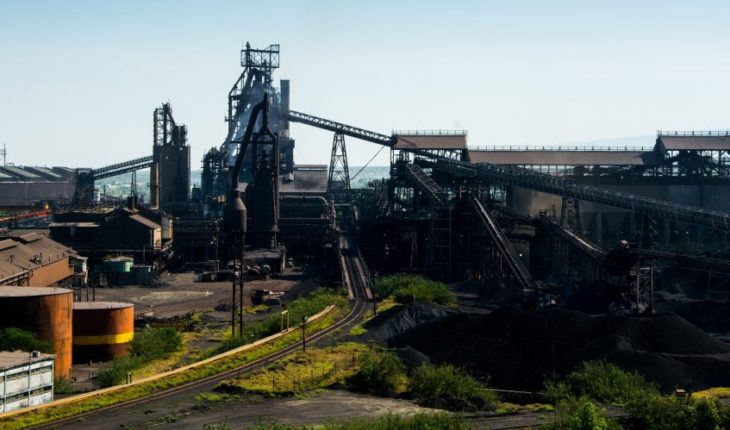The Office of the Attorney General (FGR) initiated a new research folder against the officials or former officials who are responsible, following the detection of multiple irregularities between 2015 and 2018, in the process of acquisition and implementation of the fertilizer complex known as Agro Nitrogenados, run by Petróleos Mexicanos (Pemex).
According to federal authorities, the irregularities being investigated, ranging from unsupported payments to equipment maintenance failures or cost overruns, would have resulted in losses to the State of more than $460 million. All this during the management of three former directors of Petróleos Mexicanos: Emilio Lozoya Austin, José Antonio González Anaya and Carlos Alberto Treviño Medina.
Read more: Germany opens investigation against Emilio Lozoya and his wife for money laundering
The new research folder – opened last week – is the result of a criminal complaint filed by the Federation Superior Audit (ASF), and supported by five audit opinions with its corresponding technical reports, involving Pemex, and its subsidiaries Pemex Fertilizantes and PMI Comercio Internacional S.A. de C.V.
As it is a complaint of facts, it will have to be the investigation carried out by the Public Prosecutor’s Office of the Federation that determines who are the public servants who could be criminally responsible, of this alleged breach to the public purse.
This is the second investigation that the FGR initiates in the current six-year for irregularities in the acquisition of fertilizer plants, after on March 5 the new administration of Petróleos Mexicanos (Pemex) filed a criminal complaint related to Acquisition of Fertinal.
Add to this the inquest that since the past six-year term is against former Pemex officials for the alleged bribes of the Brazilian construction company Odebrecht, in order to obtain various investment contracts.
So far, of all the former public officials under investigation, the Prosecutor’s Office has only proceeded against Emilio Lozoya.
It should be noted that the follow-up to this new case, initiated after the complaint filed by the Superior Audit of the Federation, will be in charge of the newly created Anti-Corruption Prosecutor’s Office led by María de la Luz Mijangos, as confirmed by sources of the Federation itself Asf.
Rain of irregularities
The irregularities investigated by the Public Prosecutor’s Office are found in five reports of results of financial and compliance audits, carried out by the ASF in four different financial years.
These are audits 498 DE, conducted by Pemex, and 532 DE to PMI Comercio Internacional, both from the 2015 public account; 438 DE to PMI International Trade of the Public Account 2016; as well as the 463 DE and 471 DE to Pemex Fertilizantes, from the 2017 and 2018 public accounts, respectively.
What the auditors concluded after the multi-year reviews is that the acquisition of fertilizer plants sold by the company Altos Hornos de México, led to multiple drawbacks that led not only to an unprofitable investment for the State , but losses that would already exceed $460 million.
For example, the opinion of Audit 438 DE to PMI established that costs related to the rehabilitation and commissioning of the purchased plants had originally been stipulated at $195 million, however, multiple modifications increased that cost to $443 million, or $248 million higher than originally envisaged
And audit 471 DE identified a process of devaluation of the complex’s plants, which by last year amounted to $212 million 600 thousand, derived from rehabilitation work that was not carried out.
These are estimates of losses as a result of this investment for Pemex and for the Mexican State, although the total amount of damages for the problems arising from this whole procedure has not yet been accurately quantified.
Among the irregularities reported is, for example, that the Agro Nitrogenados fertilizer plant had incomplete equipment, in poor condition or unusable plane, some three decades old and 18 years out of operation. This contributed to the plant’s operating times extending well beyond the stipulated.
A number of relevant work to be carried out for the operation of the plant was excluded from the contracts, and therefore the deadlines were not defined. Companies with different award criteria were outsourced, and the cost overcost of various payments made was not justified, in addition to initial appraisals that would have overestimated the value of the facility.
In addition, payments are made without the proper documentary support that supports the work carried out, different payments for the rehabilitation of the same equipment, and the lack of technical and human capacity of outsourced companies to execute in a timely manner various services.
In another report, the ASF adds that the whole procedure never took into account the availability of raw materials required to carry out the proper commissioning of the entire complex, which ended up causing waste of money and time.
Additional costs of the order of 22 million pesos were also detected for handling treated water, and just over one million pesos for nitrogen supplies. In addition, the receipt of two of the plants of the complex was carried out, without reliability tests, nor notice of completion of the work, nor certificates that everything was carried out in accordance with the agreement in the contract.
The auditors warn that one problem of origin was that “the risks associated with the investment project were not taken into account at its execution and operation stage, specifically those relating to relying on a single supplier and not having an alternative market”.
Poor planning of all of the above ended up causing Pemex Fertilizers to have severe liquidity and borrowing problems, and Pemex and the country as a whole to lose resources in an investment that has left more problems than profits.
Who are responsible?
The complaint filed by the Audit, like all those submitted to the Federal Public Prosecutor’s Office, refers to a series of irregular facts identified from its audits, but it is up to prosecutors to identify who is responsible, as investigations progress. Crimes usually range from improper exercise of public service to possible peculado.
What is noted is that while the purchase would have materialized between 2013 and 2015, with Lozoya at the helm of Pemex, anomalies continued to be detected throughout the rest of the six-year term, already covering other administrations.
From the point of view of the new administration of Pemex, the responsibility for the investments of fertilizer plants and the like extends not only to the general management of the company, but to its Board of Directors. This was based on the criminal complaint that they filed in Fertinal’s case last March, and of which Political Animal has a copy.
In that document, the legal guardianship of Pemex and Pemex Fertilizantes, Martha Edith Rodríguez Acosta, notes that the members of the Board of Directors “are responsible, not only administratively and/or civilly for the damages that will be caused by Mexican petroleum for their actions, acts or omissions, but even criminally.”
In this context, the civil servant identified in the denunciation of several members of the Board of Directors during the process of analysis and purchase of fertilizer plants, including Pedro Joaquín Coldwell, then secretary of the Treasury, and José Rogelio Garza Garza, Undersecretary of Industry and Commerce of the Ministry of the Economy.
And in the specific case of the purchase of Agro Nitrogenados there is an act of assembly of the Board of Directors dated December 17, 2013, where this investment was presented, and which includes, among others, Enrique Ochoa Reza, then undersecretary of Hydrocarbons, and Miguel Messmacher Linartas, Undersecretary of Income for the Treasury.
What we do in Animal Político requires professional journalists, teamwork, dialogue with readers and something very important: independence. You can help us keep going. Be part of the team.
Subscribe to Animal Politician, receive benefits and support free journalism.#YoSoyAnimal
translated from Spanish: FGR opens new investigation into Agro Nitrogenados case
July 30, 2019 |





